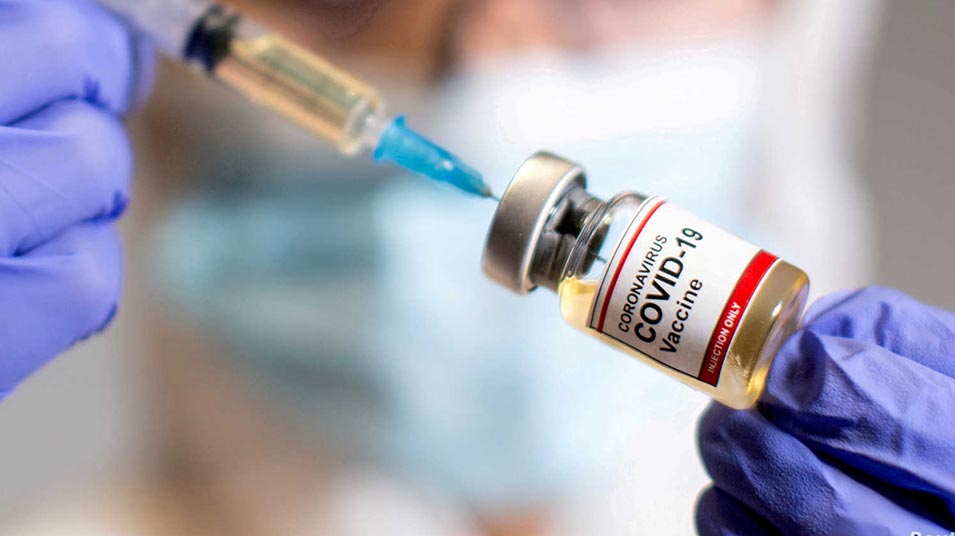Health experts discuss vaccinations, safety measures in inaugural public lecture on COVID-19
Birzeit University students and faculty, along with members of the Palestinian public, discussed the types of COVID-19 vaccines authorized for emergency use and the differences between them in a webinar organized by the Faculty of Pharmacy, Nursing and Health Professions on Saturday, January 16, 2021.
The webinar is the first in a series of public lectures and talks by the Faculty of Pharmacy, Nursing and Health Professions to raise awareness of the COVID-19 pandemic and the global efforts to combat its spread. The series will highlight various public health issues and concerns related to the pandemic and feature outside experts as well as professors and instructors from the faculty’s Audiology and Speech Therapy, Nutrition and Dietetics, Pharmacy, and Nursing departments.
Dr. Yousif Haj-Yousif, a consultant anesthetist at Southend University Hospital, and Dr. Fawzi Abukhalil, a neurology specialist and a researcher at the University of Miami Hospital, led the discussion.
Dr. Abdallah Abu Khalil, a medication therapy management specialist and a faculty member in the Department of Pharmacy at Birzeit University, moderated the discussion and introduced the structure of the SARS-CoV-2 virus, which causes COVID-19. He explained that the mechanisms of viral entry and replication in human cells are the main focus of pharmacotherapy treatment and vaccination, adding that COVID-19 vaccines target the spike-like protein structures covering the surface of SARS-CoV-2 that allow its entry into human cells.
Since they serve such a crucial function, spike proteins are the focus of COVID-19 vaccines. In the Oxford–AstraZeneca vaccine, the spike protein gene is presented in a harmless adenovirus, while the Pfizer–BioNTech and Moderna vaccines use messenger RNA mRNA to deliver the spike protein's genetic code. In both cases, the body's immune system recognizes the virus's spike proteins after injection and starts producing antibodies that prevent future infections.
A global crisis
In his presentation, Haj-Yousif emphasized the fact that COVID-19 is a public health crisis that has, to date, killed over two million people. The virulence of the disease and the rate at which it has spread across the globe, he added, meant that researchers around the world had to join efforts in a race against time to create a viable vaccine that would contain the virus and protect, first and foremost, front-line workers, the elderly, and those with weakened immune systems.
Discussing the rate at which the COVID-19 vaccines were produced, Haj-Yousif noted that, while vaccines usually take years to vet and pass clinical trials under normal circumstances properly, these vaccines were created under exceptional conditions and took advantage of previous research on other coronaviruses, such as those that caused the original SARS pandemic in 2003 or the Middle East respiratory syndrome (MERS) in 2012.
Efficacy and storage requirements
Fawzi Abukhalil, on the other hand, focused in his presentation on the differences between the currently available vaccines, saying that six have been authorized for emergency use — but have not passed the full battery of clinical trials — by different health regulators around the world: Pfizer–BioNTech, Moderna, Oxford–AstraZeneca, Sputnik V, Sinovac, and Sinopharm. Clinical trials for these vaccines will continue for the next 2-3 years, he noted.
The six vaccines added Fawzi Abukhalil could be subsumed into three categories based on how they introduce the virus's genetic material to the body: Pfizer–BioNTech and Moderna's vaccines use mRNA, Oxford–AstraZeneca and Sputnik V use a harmless adenovirus, and Sinovac and Sinopharm use an inactivated SARS-CoV-2 virus.
Dr. Fawzi Abukhalil also highlighted the differences in storage requirements between the six vaccines, noting that Pfizer–BioNTech and Moderna's use of mRNA necessitates the storage of their vaccines in special refrigerators that can handle temperatures of -70 and -20 degrees Celsius, respectively. As for effectivity, Fawzi Abukhalil noted that Pfizer–BioNTech and Moderna's vaccines score an effectivity rate of 95 percent, followed by Sputnik V at 92 percent, Oxford–AstraZeneca at 70–90 percent, Sinopharm at 79 percent, and Sinovac at 50 percent.
Haj-Yousif and Fawzi Abukhalil also reaffirmed the importance of following proper safety protocols even after the widespread deployment of COVID-19 vaccines, saying that, as experts and health care providers grapple with incomplete data on the efficacy of the vaccines resulting from short-term clinical trials, wearing masks, washing hands, and maintaining social distancing remain the primary steps in stopping the spread of the virus.
Before yielding the floor for questions by the 120-plus participants, Haj-Yousif and Fawzi Abukhalil stressed that protocols to combat COVID-19 and other public health issues and crises should be based on the characteristics and the health context of each country or nation, which are usually the prime determinants of decisions by regulators. They added that local conditions should affect the choice of vaccine and other steps to counter the disease's spread, such as lockdown duration or worker support schemes.







